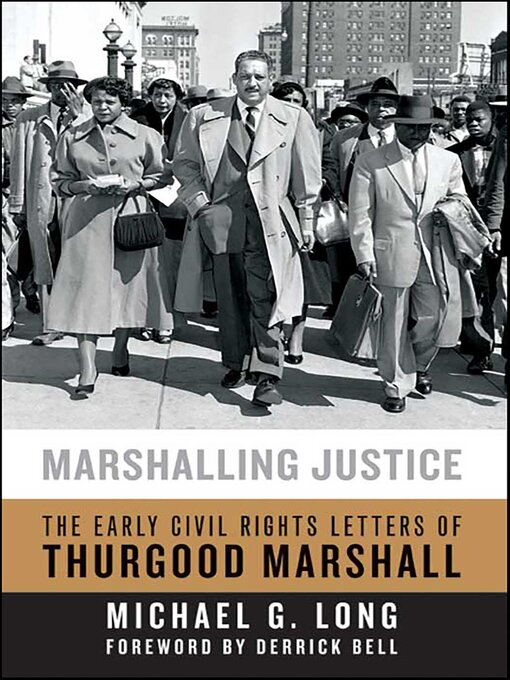“[An] important collection….Michael G. Long deserves high praise indeed for unearthing [Marshall’s letters] and bringing them to light.”
—Wil Haygood
Collected together for the first time in Marshalling Justice, here are selected letters written by one of the most influential and important activists in the American Civil Rights movement: the brilliant legal mind and footsoldier for justice and racial equality, Thurgood Marshall. The correspondences of a rebellious young attorney with the National Association for the Advancement of Colored People (NAACP), Marshalling Justice paints an eye-opening portrait of Thurgood Marshall before he became the first African American to serve on the U.S. Supreme Court, during his years as a groundbreaking and vibrant Civil Rights activist in the tradition of Martin Luther King and Julian Bond.



